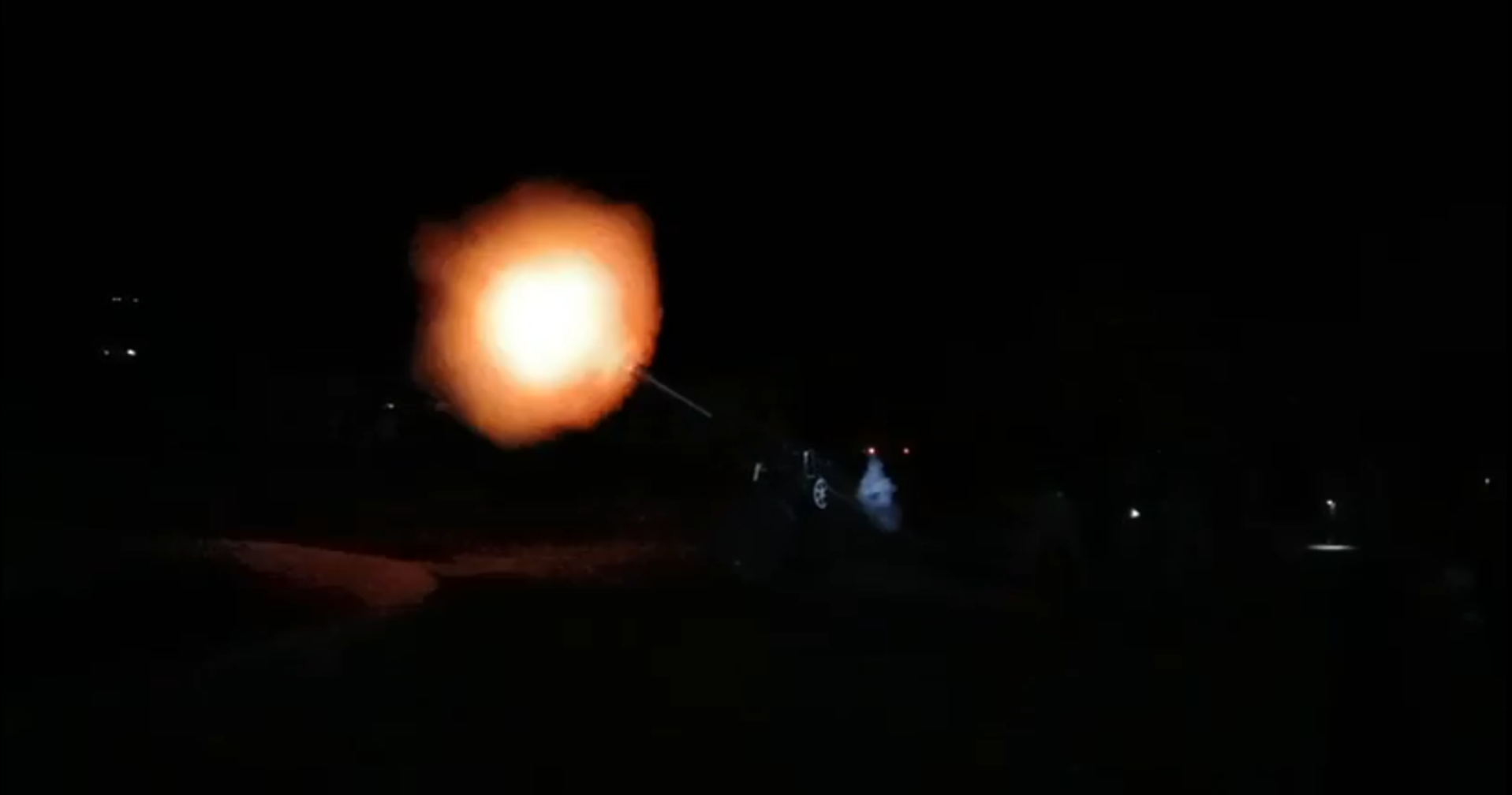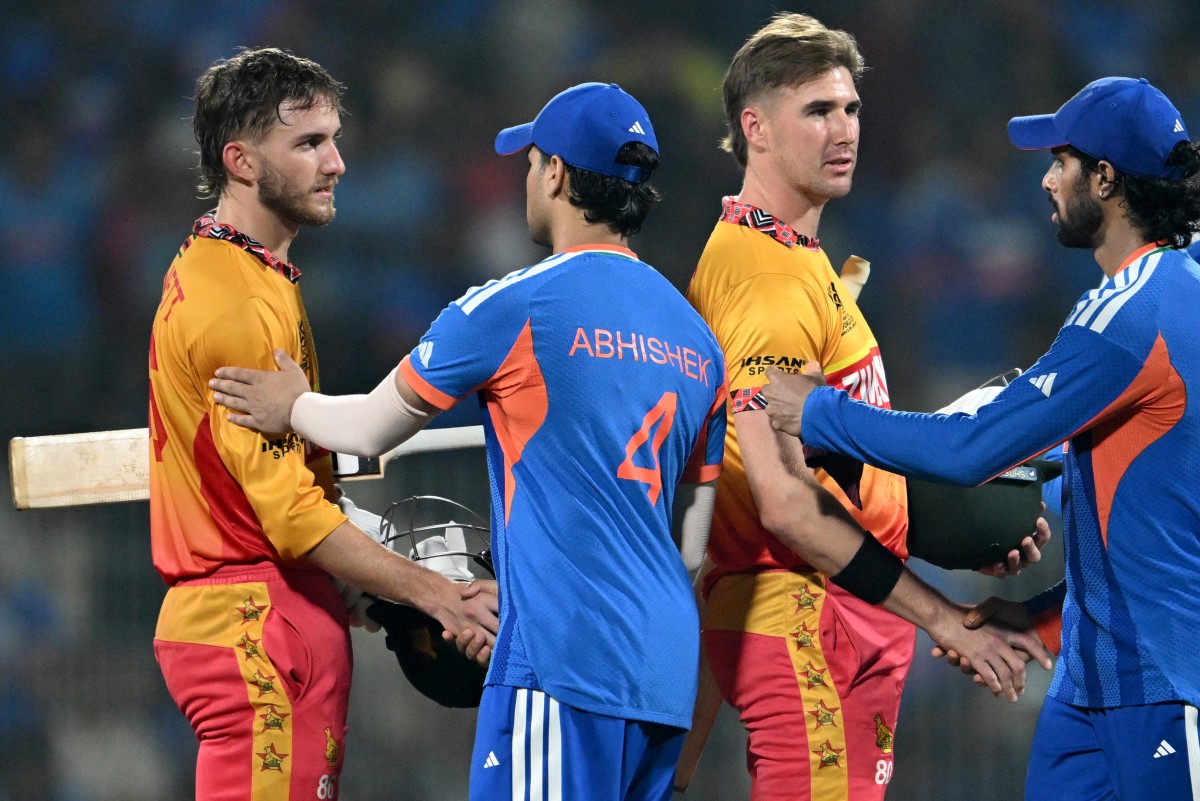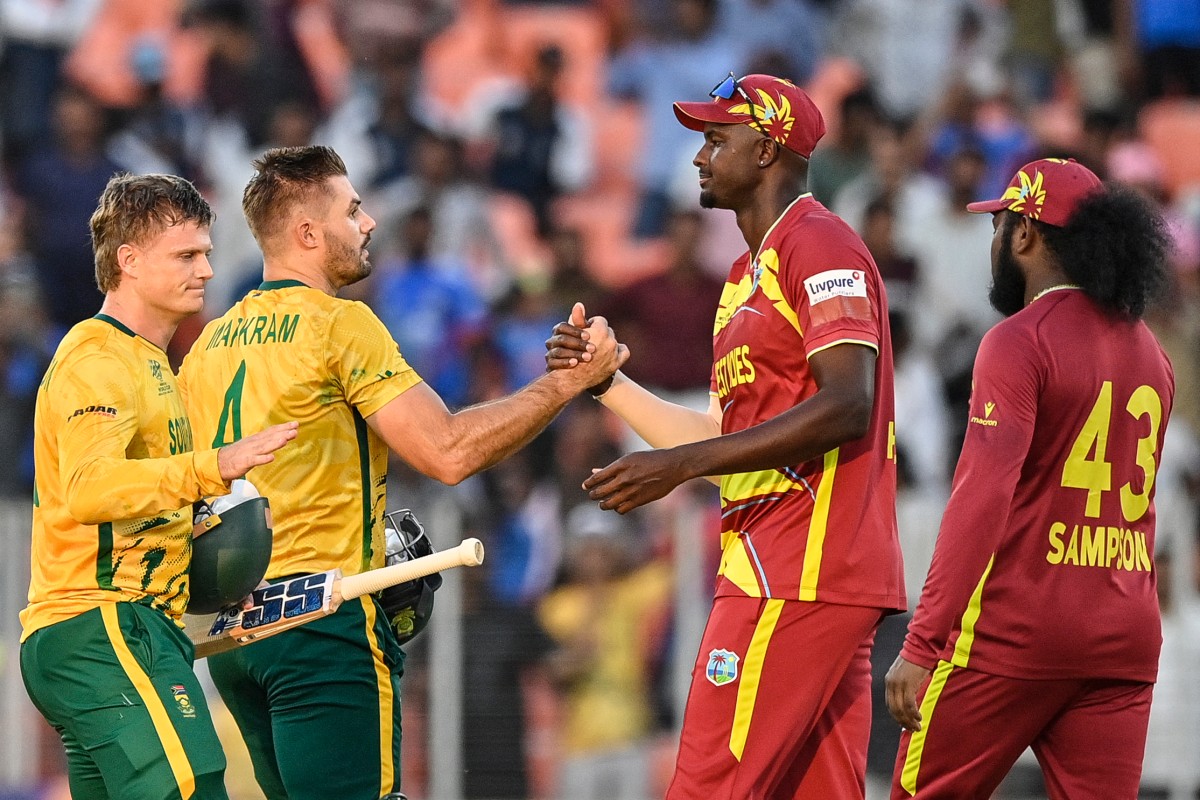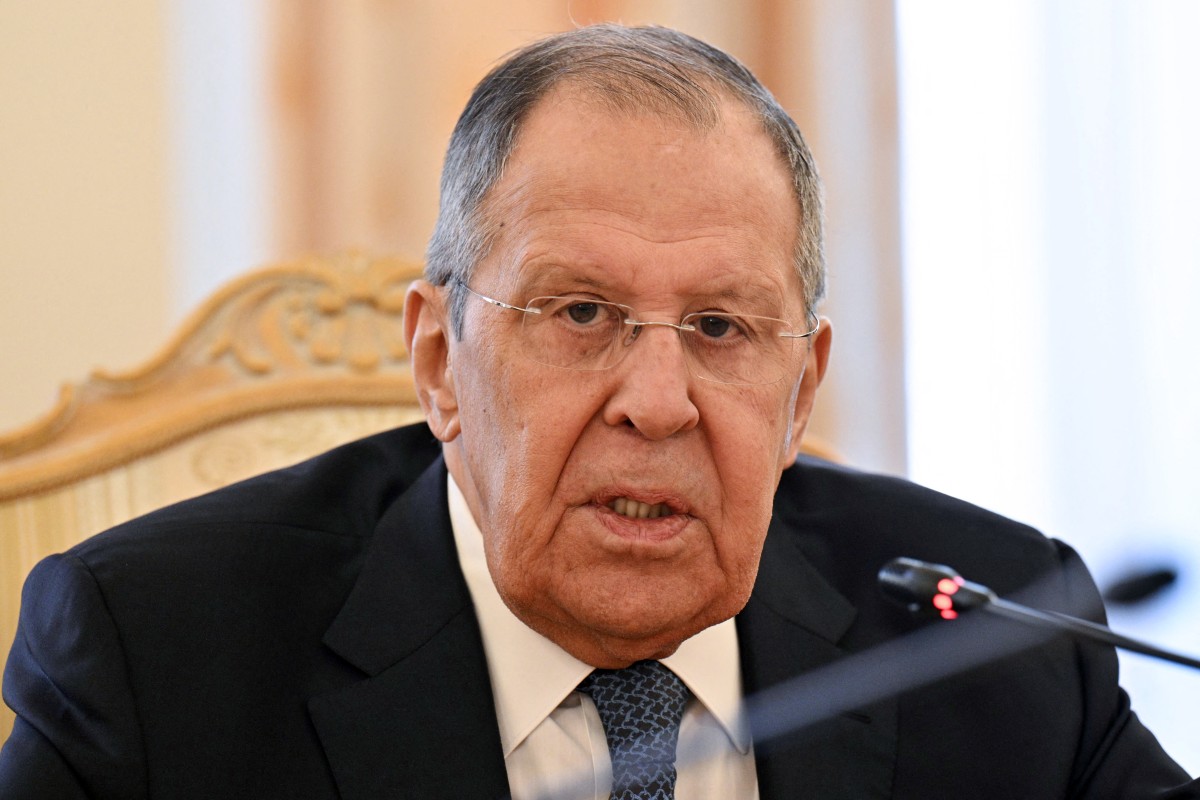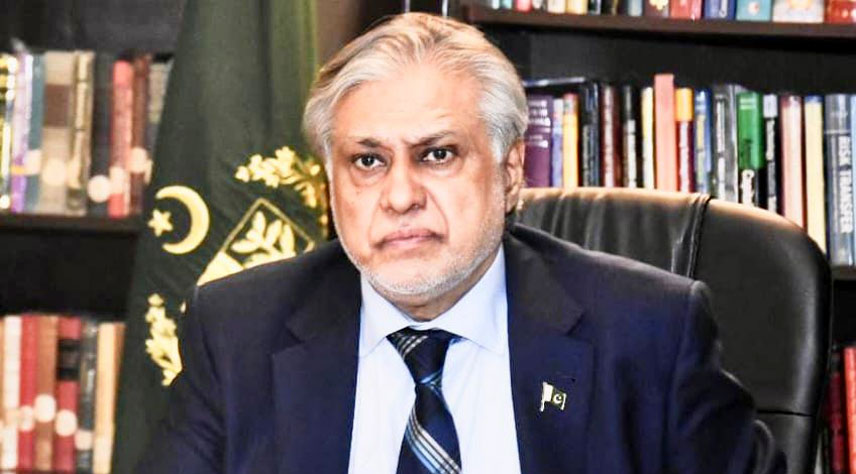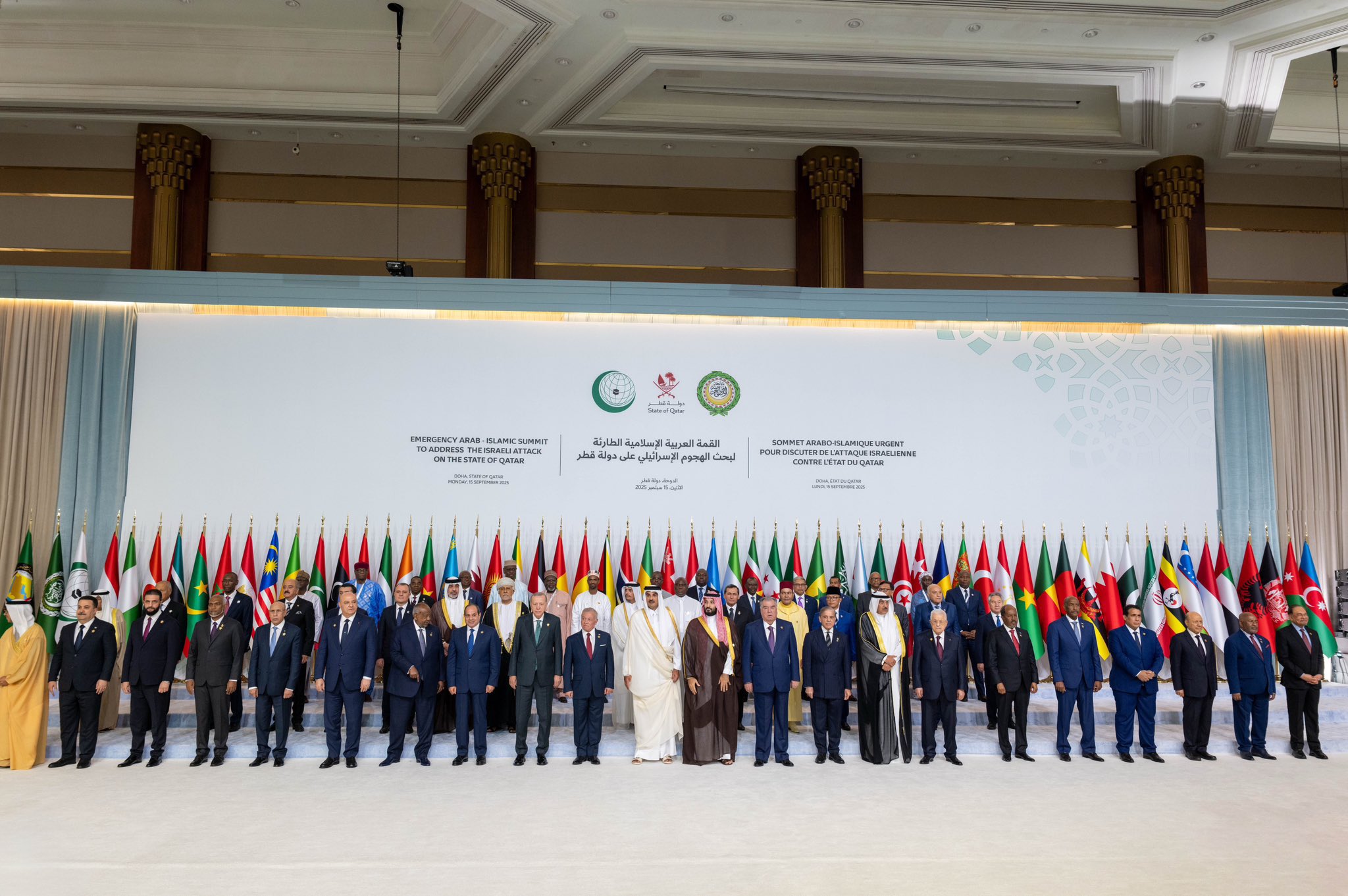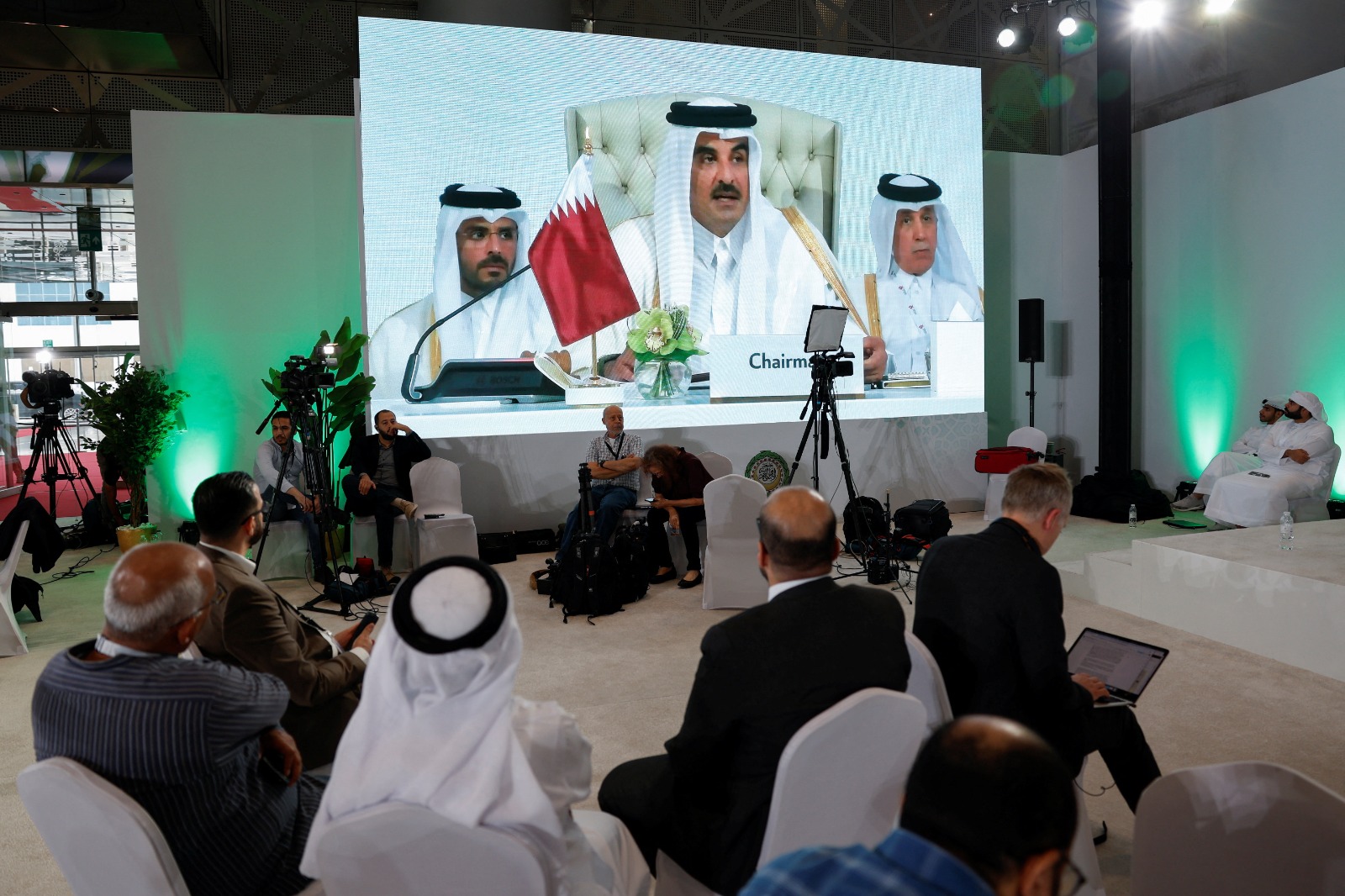ISLAMABAD: Foreign Minister Ishaq Dar has said "the Muslim world must move beyond words," hinting at joining forces if a Middle East coalition is formed to counter Israeli aggression.
"Pakistan has a very large, known, very effective army, very effective air force, very effective navy … We have proved that we can beat [our opponent] even conventionally, if challenged," Ishaq Dar said during an interview with Al Jazeera, when asked how Pakistan might respond if a united Middle Eastern body were formed to counter Israeli aggression.
The interview, recorded ahead of the recently concluded Arab-Islamic summit, following Israel’s strikes in Qatar and published late Monday night, featured Dar sharing his views about a possible Muslim coalition against Israel’s aggression.
Asked if the formation of a united body in the Middle East, away from the United Nations' structure, to intervene in Gaza was an option, Dar said, “vis-à-vis the UN Security Council, a mechanism could be chalked out.”
He stated that the UNSC can impose severe economic sanctions. It can cause a "very severe economic dent or pain," he added.
“There has been some talk of a ‘combined security force’ among Arab nations and the Arab League,” Dar revealed. “Why not? They should form a force, not for aggression, but for peacekeeping and for stopping the aggressor, the occupier, the one who doesn’t listen,” Dar said.
Asked where the nuclear-powered Pakistan would stand in such a scenario, Dar said Pakistan’s nuclear arsenal is intended only as a deterrent, not a weapon of first use.
The UN has failed to maintain peace
Earlier in the interview, Dar also addressed Israel’s recent strike in Qatar that targeted Hamas leaders in Doha. He called the attack “baseless” and “rogue,” stressing that Qatar was mediating peace efforts alongside the US and Egypt at the time.
He pointed to a broader pattern of Israel striking various Middle Eastern countries and ignoring international norms. “International law, humanitarian rules, OIC and UN resolutions seem not to affect one country that repeatedly acts however it wants.”
Dar argued this underscores the urgent need for UN reform. “The UN Security Council is supposed to maintain peace. But if its resolutions are being discarded by Israel in Gaza and Palestine, and by India in Kashmir, what do we expect from the multilateral system?”
“This is the need of the hour,” Dar emphasized, hinting at legal, diplomatic, and financial measures that Islamic countries may collectively consider.
